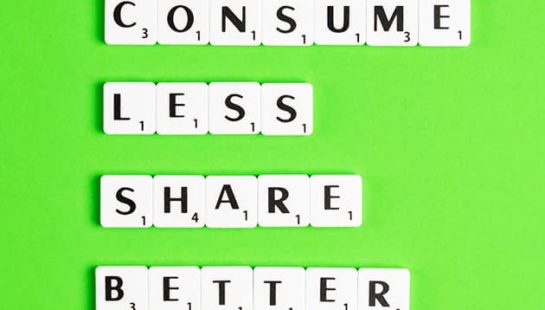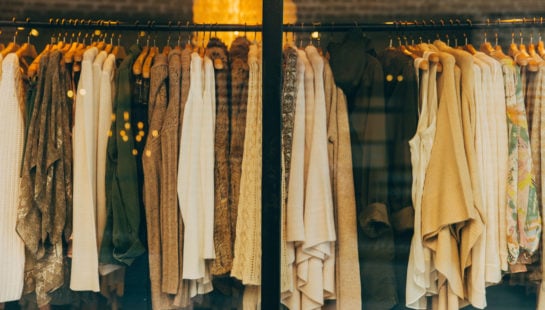Perspective Is A Powerful Thing
As we got further and further away, it [the Earth] diminished in size. Finally it shrank to the size of a marble, the most beautiful you can imagine. That beautiful, warm, living object looked so fragile, so delicate, that if you touched it with a finger it would crumble and fall apart. Seeing this has to change a man.
— JAMES B. IRWIN, APOLLO ASTRONAUT
Perspective is a powerful thing.
When viewing the earth from afar, our own insignificance could not weigh more heavily. Comparatively, each of us are little more than a speck of dust on the surface of our planet, suspended in infinity. In this way, it is extraordinary to consider the collective power we have to affect the fate of a living ecosystem, so much larger than ourselves.
Planet earth. The blue marble. Our globe. Just a few names for the one home shared by the human race. It’s impossible to fathom the lived experience of the nearly eight billion people spread across our planet. Some are starving, some are feasting. Some are experiencing drought and famine. Others face rising sea levels which threaten their homes. Some people are exploited in dire vulnerability… and others exploit their neighbours and environment for profit.
Passionate About People?
As millions of people across the world face poverty, illness, and hardship, God’s creation also faces irreversible destruction. Often saving the planet and saving society are held in tension. But the truth is, one cannot be passionate about people, without also being passionate about our planet. Social issues and environmental issues are not separate. They’re inextricably linked. To live and thrive, we need clean air to breathe, safe water to drink, good soil to produce nutritious food. That’s why we must care for our planet as well as the people living on it, if we are to experience the fullness of life as God intends.
The geological age we are living in has been called, “Anthropocene”, a title which acknowledges that human activity has been the dominant influence over the climate and the environment. As our population has grown exponentially over the 20th century, so too has our appetite to consume. This has come at a huge cost to our society and God’s earth.
Where Do You Start? Your Closet
Many of us need look no further than our wardrobe to see this in action! Fast fashion has made it easy for us to purchase clothing cheaply and often, without having to consider who made our clothes or why they’re so cheap. If clothes are cheap, then chances are that the earth, and vulnerable workers are the ones paying the price. It’s easy to forget just how connected we are and how powerful that can be. Both for good and bad.
This interconnectedness has been particularly evident in recent weeks as the COVID-19 pandemic has evolved. It has reminded us of the fragility of life. What started as a single case has now (as of the time of writing) locked down almost a third of our global population. As you learned, yesterday, the flow on impact for supply chains has been devastating.
Fashion supply chains have been particularly hard hit, with many factories and fashion companies forced to suspend business as usual. Fashion production, as a global industry, is commonly regarded as one of the largest polluting industries, worldwide. It produces 10% of all global carbon emissions and is the second largest consumer of the world’s water supply. It has had a devastating impact on the planet and, as a result, on people as well.
And now the global fashion industry has been forced to pause and reflect in the wake of this crisis. As retail stores have closed and customer demand has plummeted, some interesting and unexpected stories have emerged from production-intensive areas around the world.
China is the world’s leading producer of textile and fashion items. As it was placed into lockdown over February, heavily polluted skies cleared to levels of visibility not seen in years. Over two months, carbon emissions dropped by 25% and nitrogen dioxide by 42%. Should we want to go back to business as usual if this is what it costs?
COVID Felt By Most Vulnerable People In The World
Like the climate crisis, the COVID crisis will be felt most deeply by the most vulnerable people in the world. While nations grapple with the economic and humanitarian impacts of COVID on an immediate level, the large, ongoing climate crisis is still looming. The United Nations Millennium Ecosystem Assessment concluded that, “Any progress achieved in addressing the goals of poverty and hunger eradication, improved health, and environmental protection is unlikely to be sustained if most of the ecosystem services on which humanity relies continues to be degraded”. Another recent report from the UN stated that by 2030, an additional 120 million people could be pushed into poverty as a result of climate damage, which threatens to undo the last 50 years of collective global progress made in development, health, and poverty reduction.
The ongoing health of God’s creation hinges on our stewardship of it… and the sacrifices that we are willing to make as individuals, collectively.
What Will Our Legacy Be?
The reality is, that following the COVID, once production and society find some kind of stability again, any short-term environmental benefits experienced will likely be reversed as factories scramble to catch up on lost time… and lost money. Emissions will return to usual and smog will once again blanket cities – bringing with it the respiratory conditions that plague citizens in these areas. Water sources will once again be drained – diverting drinking water away from people who rely on it for survival. Chemical waste will again be released into waterways – poisoning the small ecosystems that still exist and making their way into our food chain to cause diseases and a myriad of health conditions. And as consumers, the challenge we are faced with as we emerge from COVID life, is this: will we continue to consume at a rate that has, for many years, catalysed all this destruction? And endangered the survival of so many people?
The global action taken in response to COVID is a true testament to the way in which change can be initiated when a collective approach is taken by society. Let’s not risk the future of humanity as we put caring for creation on the backburner. Let’s act with the sense of urgency that COVID has demanded from us all. Let’s use our power and act, with care for each other… and our home.
This article is from a five-part series on ethical fashion and the global fashion industry. To see all five parts, please click here.



